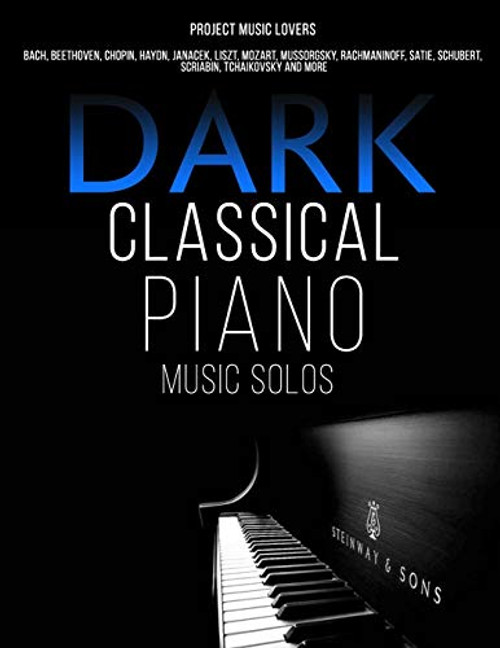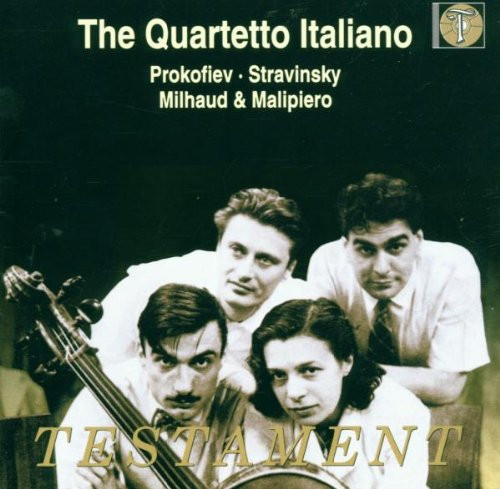Product Description
Starring Prokofiev, Brahms, Chopin.
Amazon.com
Weissenberg was at the beginning of his substantial international career in these films, mostly made by French television in the 1960s. The one exception is a 1965 version of Stravinskys Three Movements from
Petrouchka renowned in its time for attempting to mirror the musics rhythms and moods. Directed by Åke Falck and filmed in a Stockholm studio, the camera is a creative partner with composer and pianist. So all kinds of odd angles are employed. If you want to see what Weissenbergs chin looks like from the vantage point of the keyboard, heres your chance. Lighting and backgrounds change often, but theres an element of art-house kitsch to the film that today seems dated. In a bonus track, Weissenberg speaks about how the film was made and the difficulties of matching finger movements to the prerecorded sound track while he "played" the work on a specially built silent piano, whose inner plumbing is an important visual element here. As for Weissenbergs playing, this difficult piece is red meat for a virtuoso of his caliber and hes predictably impressive, although the piano tone can get glassy in the treble and the considerable pounding the piano gets can leave you feeling pummeled. A wild ride perhaps, but a worthwhile one. The remainder of the solo part of the program consists of Weissenberg favorites: an example of
Age of Iron Prokofiev via his Sonata No.3, a Scriabin Nocturne that shows the pianists lyric side, a Chopin set offering well-played, interpretively squeaky-clean pianism that needs more tonal bloom than the various engineers could supply at the time. Weissenberg programmed a lot of Bach and some of his best playing comes in the
Chromatic Fantasy (here shorn of the Fugue). Bach that looks filmed in a dark celler at midnight, Myra Hess famed transcription of
Jesu, joy of mans desiring gets a steel-fingered rendition. The biggest piece on the disc, Brahms Piano Concerto No. 2, with the French Radio Orchestra led by a heavily perspiring George Prêtre, features grainy video and compromised sound that should have been better for its 1969 date. But pianophiles will be interested in this record of a famed virtuoso at his peak. --
Dan Davis
Stravinsky Prokofiev Scriabin Rachmaninov Chopin Bach Brahms Alexis Weissenberg - Classic Archive
MSRP:
Was:
$129.72
Now:
$64.86
(You save
)
(No reviews yet)
Write a Review

Write a Review

Stravinsky Prokofiev Scriabin Rachmaninov Chopin Bach Brahms Alexis Weissenberg - Classic Archive
- SKU:
- VTO180807
- UPC:
- 899132000626
- Condition:
- New
- Availability:
- Free Shipping from the USA. Estimated 2-4 days delivery.

Add to Cart
The item has been added
Nikolai Lugansky Recital: Janacek/Prokofiev/Liszt/Rachmaninov/Chopin
MSRP:
Was:
$110.28
Now:
$55.14

Add to Cart
The item has been added
Gabriela Montero- Chopin · Falla · Ginastera · Granados · Liszt · Rachmaninov · Scriabin -Includes Bonus CD-
MSRP:
Was:
$107.50
Now:
$53.75

Add to Cart
The item has been added
Oistrakh Menuhin and Rostropovich Play Bach Brahms and Mozart -EMI Classic Archive 18-
MSRP:
Was:
$129.88
Now:
$64.94

Add to Cart
The item has been added

Add to Cart
The item has been added
Ivo Pogorelich Beethoven Chopin Scriabin
MSRP:
Was:
$100.74
Now:
$50.37

Add to Cart
The item has been added
Chopin and Rachmaninov Cello Sonatas
MSRP:
Was:
$91.10
Now:
$45.55

Add to Cart
The item has been added
Arthur Rubinstein Plays Chopin and Rachmaninov
MSRP:
Was:
$103.54
Now:
$51.77

Add to Cart
The item has been added
Quartetto Italiano Plays Prokofiev, Stravinsky, Milhaud & Malipiero
MSRP:
Was:
$85.78
Now:
$42.89

Add to Cart
The item has been added
The Seattle Recital Beethoven Chopin Debussy Prokofiev
MSRP:
Was:
$77.86
Now:
$38.93
!

